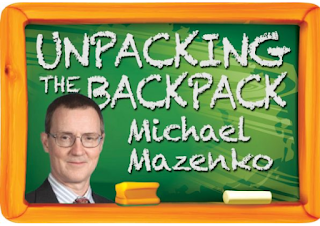As the December college admissions dates approach, I’m struck by Didion’s insight that too often the college application process is more about the parents than the kids. Didion explains the wisdom she realized decades after her college disappointment. As a successful writer at that point, she explained, “none of it matters very much … these early successes, early failures.” In pondering her cousin’s struggle, Didion hoped people could “find some way to let our children know this … [because] finding one’s role at seventeen is problem enough, without being handed somebody else’s script.”
Didion’s advice was mirrored recently by writer Allison Tate in a piece for the Washington Post titled “College Admissions are Tough Enough – Parents, Don’t Make it Any Worse.” As the mother of two college-aged children, Tate recalled angst-filled conversations she’s had with young people about applying to college. They wonder if they should start a club, if they’re taking the right classes, if their parents will be proud of them if they don’t get into the right school. One student mentioned a college he liked and which was a good fit, but then lamented, “I can’t apply there. My dad says it’s not a good school.”
Too often, successful, high-achieving students who just want to get into “a good college” are left feeling inadequate and disappointed in their accomplishments. Just for perspective, there are roughly 6000 post-secondary institutions in the United States, and more than 3000 degree-granting colleges and universities. So, when students aim for the top ten percent of colleges, they have literally hundreds of options. Even on the most selective lists, there are more than thirty schools in the top one percent. Sadly, however, too many people believe there are really only a few that are even worth considering.
This misleading and myopic view of higher education has spawned an entire industry which exploits the anxiety of the college admissions process. Many people believe they can, or must, play the college admissions game by getting advice from specialized college admissions counselors. However, unless there’s some sort of corrupt deal-making like in the Varsity Blues scandal a few years ago, none of these counselors are actually getting a kid into the college. It’s more likely the private college counselor industry is simply preying on the insecurities of families who have been led to believe their child is not going to get into a good college, or better said “the right college.”
This obsessive pursuit of admission to the right school was the focus of a recent New York Times article on elite colleges. The impetus was an interview with actress Felicity Huffman who went to jail for her part in the college admissions scandal. In a statement that is “both shocking and illuminating,” Huffman justified her actions by saying “I felt like I had to give my daughter a future.” The pressure that led an affluent, well-connected celebrity to pay someone to “fix” her daughter’s SAT score reflects the mystifying actions some parents will take to gain an advantage to their children’s college process.
New York Times writer Frank Bruni has researched the college admissions process, and he is particularly critical of ideas like a “good college” or “the right school.” Bruni, who turned down Yale University to attend North Carolina, published his findings in his book Where You Go is not Who You’ll Be. Alison Tate believes terms like “reach school,” “dream college,” and “safety school” should be abolished from any authentic conservation about colleges between students and their parents. Seriously, what child would be proud and excited to attend their safety school?
As Didion pointed out years ago, growing up is hard enough without the pressure of “the right school.” Several years ago I listened to a parent of a graduating senior give some advice to the parents of incoming freshmen who were about to embark on their high school career. “Remember,” she said, “you’re raising a child, not a college applicant.”

No comments:
Post a Comment